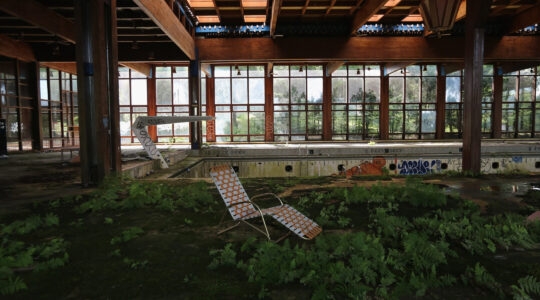Lately, it seems like everybody’s a fan of the idea of a Jewish state…and nobody’s a fan of the State of Israel. First, Michael Chabon‘s novel The Yiddish Policemen’s Union, a sort of post-Zionist fantasy, moved the Jewish “safe country” from the Middle East to Alaska. Then the recent documentary Freeland (watch it here, free) researched the early-1900s quest to build a Jewish settlement in places as diverse as Australia, Suriname, and French Guiana.
Now an online group of young Jews, headed by the artist Ronen Eidelman, is campaigning for an independent Jewish state–in Thuringia, Germany, the former headquarters of the Weimar Republic. It’s a strange choice of location, if historically dynamic: the Weimar Republic was the German democracy that was founded after World War I, and collapsed with Hitler‘s seizure of absolute power in 1933.
On their website, MedinatWeimar.org, the movement’s founders make a convincing–if somewhat cynical–case for their existence: “Thuringia…with its history of anti-Semitism and German nationalism, as well as its shrinking population and weak economy, is the optimal place for a new Jewish state.” Its purpose–to create a Jewish cultural and political state that every Jew can agree with–is theoretically admirable (although, aren’t they familiar with the saying, “Two Jews, three opinions”?). But its founders also stress that they aren’t anti-Israel. “Medinat Weimar is not a replacement of the current state of Israel, but a different Jewish state,” they note in their Thirteen Principles.
The 1900s-era Weimar Republic was a brief flutter in German history–a hopeful, but ultimately unsustainable, period of democracy. Here too, we can’t help feeling a little pessimistic about the possibility of Medinat Weimar–even if these folks could form a colony, how long would it last?–but it’s an intriguing possibility.
JTA has documented Jewish history in real-time for over a century. Keep our journalism strong by joining us in supporting independent, award-winning reporting.





